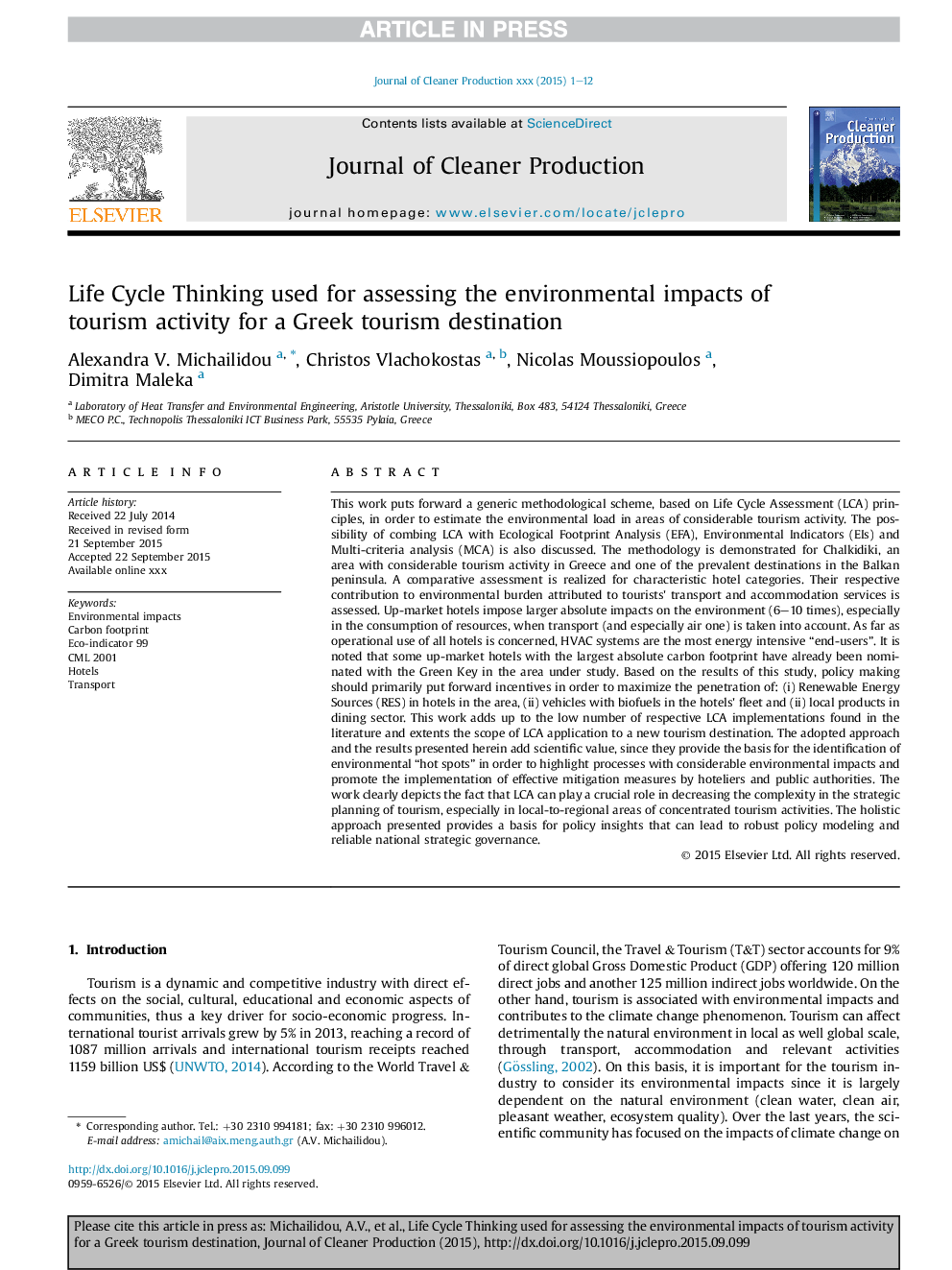| Article ID | Journal | Published Year | Pages | File Type |
|---|---|---|---|---|
| 10688130 | Journal of Cleaner Production | 2016 | 12 Pages |
Abstract
This work puts forward a generic methodological scheme, based on Life Cycle Assessment (LCA) principles, in order to estimate the environmental load in areas of considerable tourism activity. The possibility of combing LCA with Ecological Footprint Analysis (EFA), Environmental Indicators (EIs) and Multi-criteria analysis (MCA) is also discussed. The methodology is demonstrated for Chalkidiki, an area with considerable tourism activity in Greece and one of the prevalent destinations in the Balkan peninsula. A comparative assessment is realized for characteristic hotel categories. Their respective contribution to environmental burden attributed to tourists' transport and accommodation services is assessed. Up-market hotels impose larger absolute impacts on the environment (6-10 times), especially in the consumption of resources, when transport (and especially air one) is taken into account. As far as operational use of all hotels is concerned, HVAC systems are the most energy intensive “end-users”. It is noted that some up-market hotels with the largest absolute carbon footprint have already been nominated with the Green Key in the area under study. Based on the results of this study, policy making should primarily put forward incentives in order to maximize the penetration of: (i) Renewable Energy Sources (RES) in hotels in the area, (ii) vehicles with biofuels in the hotels' fleet and (ii) local products in dining sector. This work adds up to the low number of respective LCA implementations found in the literature and extents the scope of LCA application to a new tourism destination. The adopted approach and the results presented herein add scientific value, since they provide the basis for the identification of environmental “hot spots” in order to highlight processes with considerable environmental impacts and promote the implementation of effective mitigation measures by hoteliers and public authorities. The work clearly depicts the fact that LCA can play a crucial role in decreasing the complexity in the strategic planning of tourism, especially in local-to-regional areas of concentrated tourism activities. The holistic approach presented provides a basis for policy insights that can lead to robust policy modeling and reliable national strategic governance.
Related Topics
Physical Sciences and Engineering
Energy
Renewable Energy, Sustainability and the Environment
Authors
Alexandra V. Michailidou, Christos Vlachokostas, Îicolas Moussiopoulos, Dimitra Maleka,
